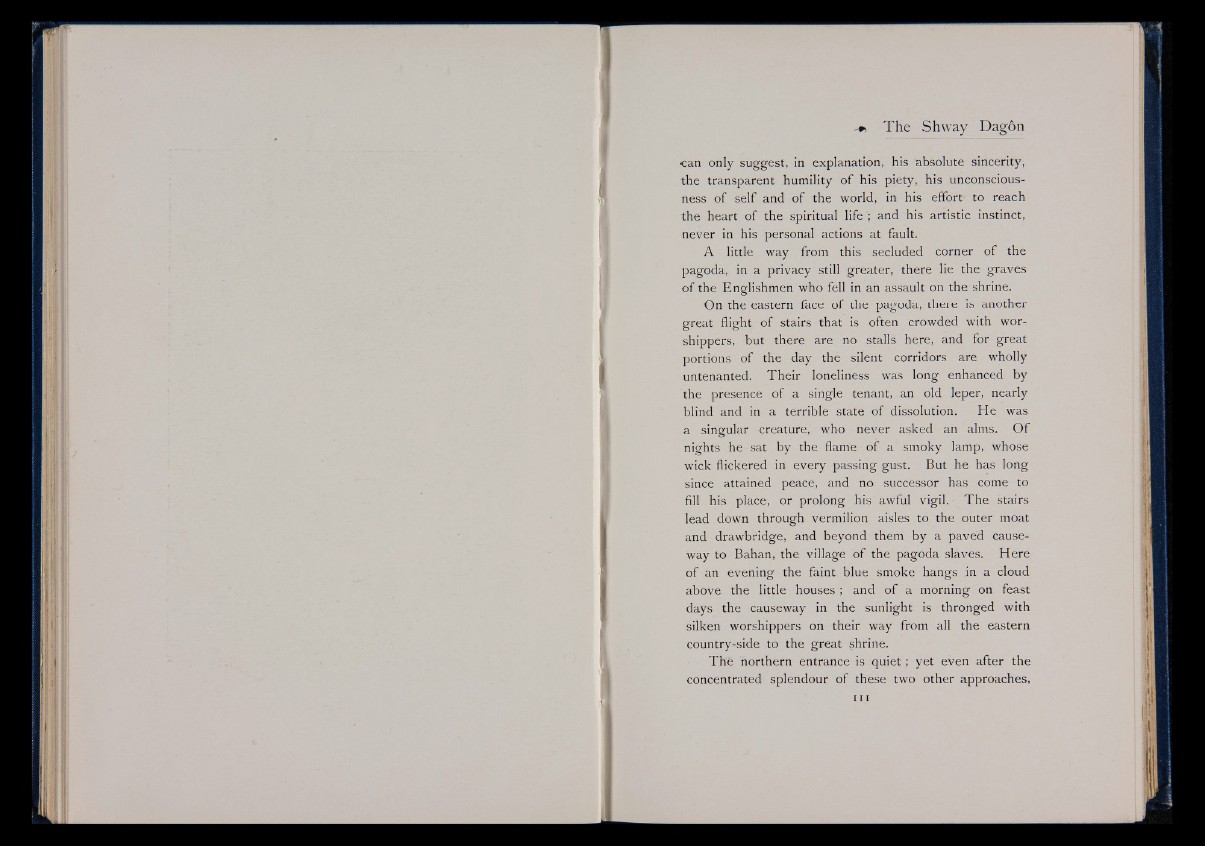
can only suggest, in explanation, his absolute sincerity,
the transparent humility of his piety, his unconsciousness
of self and of the world, in his effort to reach
the heart of the spiritual life ; and his artistic instinct,
never in his personal actions at fault.
A little way from this secluded corner of the
pagoda, in a privacy still greater, there lie the graves
of the Englishmen who fell in an assault on the shrine.
On the eastern face of the pagoda, there is another
great flight of stairs that is often crowded with worshippers,
but there are no stalls here, and for great
portions of the day the silent corridors are wholly
untenanted. Their loneliness was long enhanced by
the presence of a single tenant, an old leper, nearly
blind and in a terrible state of dissolution. He was
a singular creature, who never asked an alms. Of
nights he sat by the flame of a smoky lamp, whose
wick flickered in every passing gust. But he has long
since attained peace, and no successor has come to
fill his place, or prolong his awful vigil. The stairs
lead down through vermilion aisles to the outer moat
and drawbridge, and beyond them by a paved causeway
to Bahan, the village of the pagoda slaves. Here
of an evening the faint blue smoke hangs in a cloud
above the little houses ; and of a morning on feast
days the causeway in the sunlight is thronged with
silken worshippers on their way from all the eastern
country-side to the great shrine.
Thfe northern entrance is quiet ; yet even after the
concentrated splendour of these two other approaches,